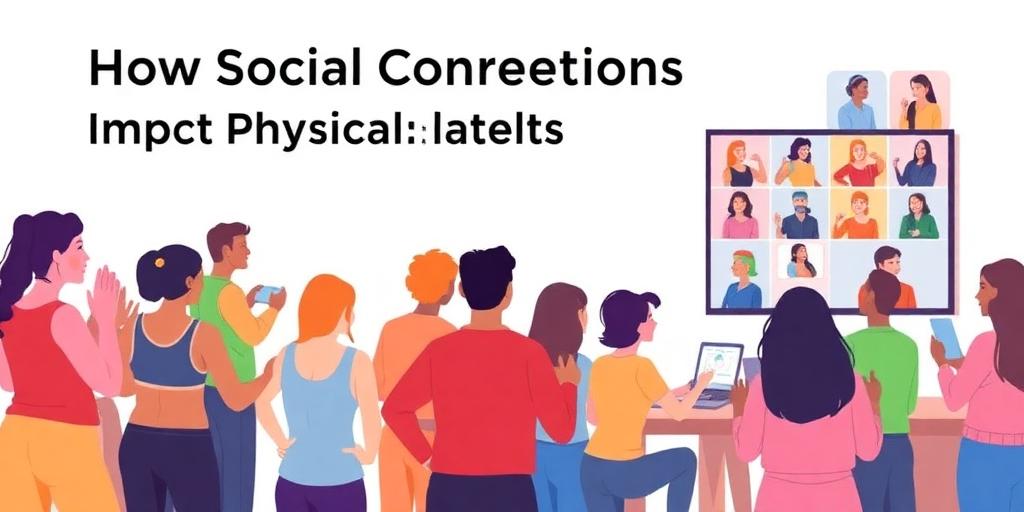How Social Connections Impact Physical Health (2025)
In 2025, understanding the intricate link between social connections and physical health is more critical than ever. Research consistently demonstrates that strong social relationships are not just beneficial for mental well-being but also play a vital role in maintaining physical health. This article explores the multifaceted ways social connections impact our bodies, offering insights into how we can cultivate healthier lives through meaningful relationships.
The Science Behind Social Connections and Health
Numerous studies have illuminated the biological mechanisms through which social interactions affect our physiology. Social connections influence:
- Immune Function: Individuals with strong social support tend to have more robust immune systems, making them less susceptible to infectious diseases.
- Cardiovascular Health: Social isolation is linked to an increased risk of heart disease and stroke. Positive social interactions can help lower blood pressure and improve heart rate variability.
- Endocrine System: Social support can modulate the hypothalamic-pituitary-adrenal (HPA) axis, reducing the body's response to stress.
- Longevity: People with strong social ties tend to live longer. A meta-analysis of numerous studies found that social isolation is as detrimental to health as smoking 15 cigarettes a day.
Practical Ways to Strengthen Social Connections
Given the profound impact of social connections on physical health, it's essential to actively nurture our relationships. Here are some practical strategies:
- Prioritize Quality Time: Make a conscious effort to spend meaningful time with loved ones. Engage in activities you both enjoy and be present in the moment.
- Join Social Groups: Participate in clubs, sports teams, or community organizations. Shared interests can foster strong bonds and a sense of belonging.
- Volunteer: Helping others is a great way to connect with like-minded individuals and boost your own well-being.
- Stay in Touch: Regularly communicate with friends and family, whether through phone calls, messages, or video chats. Even small interactions can make a big difference.
- Seek Support: Don't hesitate to reach out to your social network when you're going through a difficult time. Sharing your struggles can strengthen relationships and provide emotional relief.
The Role of Technology
In 2025, technology continues to play a significant role in how we connect with others. While digital interactions can't replace face-to-face connections, they can be a valuable tool for maintaining relationships, especially for those who are geographically distant. Social media platforms, video conferencing, and online communities can help us stay connected and foster a sense of belonging.
Challenges and Considerations
Despite the benefits of social connections, it's important to acknowledge the challenges and potential downsides:
- Toxic Relationships: Not all social connections are beneficial. Relationships characterized by conflict, negativity, or abuse can have detrimental effects on physical and mental health. It's essential to set boundaries and prioritize healthy relationships.
- Social Comparison: Social media can sometimes lead to feelings of inadequacy and social comparison, which can negatively impact well-being. It's important to be mindful of how social media affects you and to use it in a way that promotes connection rather than comparison.
- Digital Overload: Spending too much time online can lead to social isolation and a lack of real-world interactions. It's important to balance digital connections with face-to-face interactions.
The Future of Social Connections and Health
As we move further into the 21st century, understanding the link between social connections and physical health will become even more crucial. Innovations in technology and healthcare may offer new ways to foster social connections and improve health outcomes. By prioritizing meaningful relationships and addressing the challenges of social isolation, we can create a healthier and more connected society.
In conclusion, social connections have a profound impact on our physical health, influencing everything from our immune function to our cardiovascular health and longevity. By actively nurturing our relationships and addressing the challenges of social isolation, we can cultivate healthier lives and create a more connected society.









